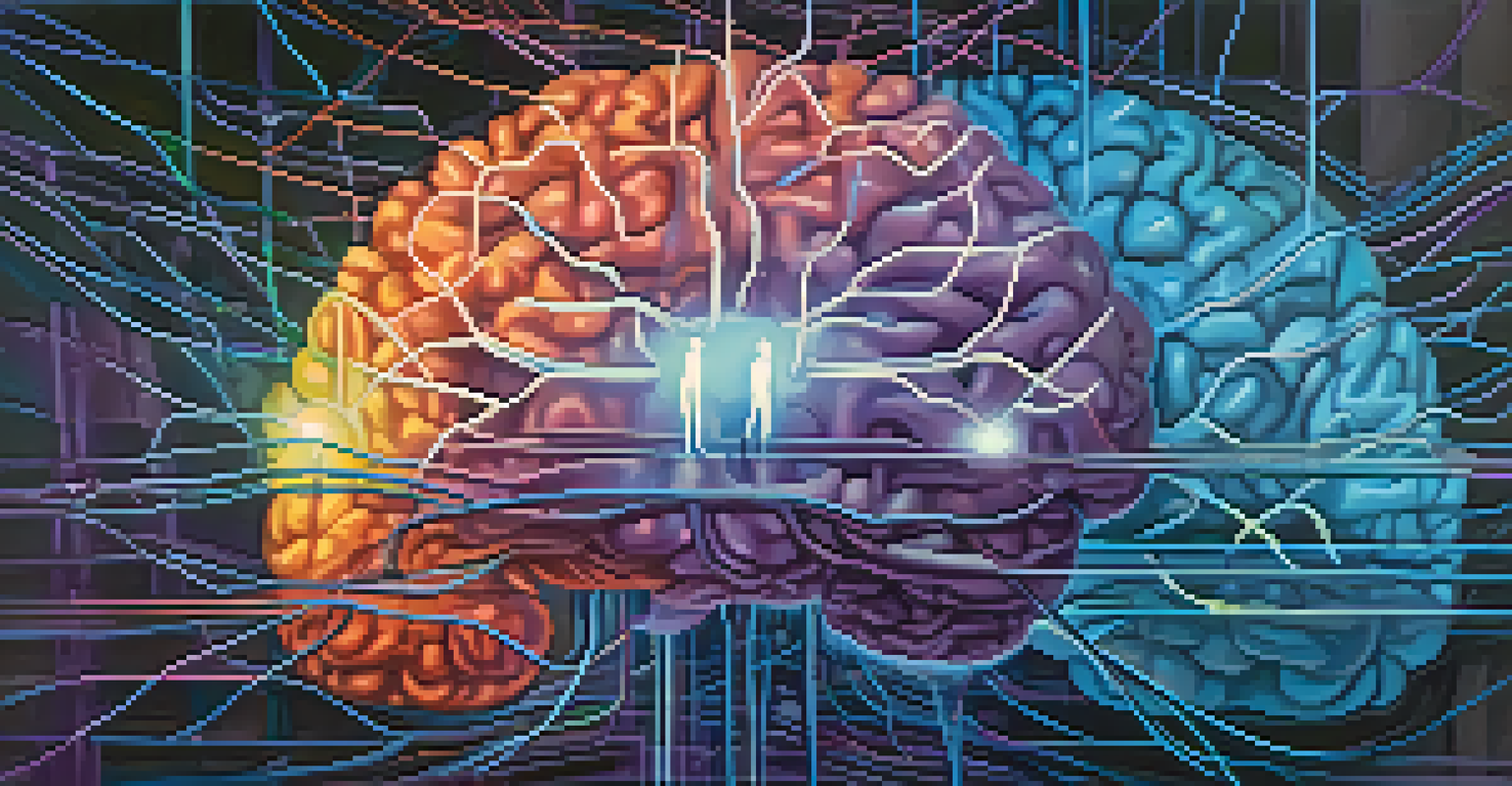Empathy Development Through Psychedelic Experiences Explained

Understanding Empathy: A Deep Dive into Connection
Empathy is the ability to understand and share the feelings of others. It plays a crucial role in human connection and emotional intelligence. By stepping into someone else's shoes, we can foster deeper relationships and a sense of community.
Empathy is about finding echoes of another person in yourself.
In today's fast-paced world, empathy often takes a backseat, leading to misunderstandings and isolation. This is where the fascinating potential of psychedelics comes into play. Many individuals are exploring these substances as tools for personal growth and connection.
Research indicates that psychedelics can break down barriers, allowing individuals to experience heightened emotional awareness. This shift can lead to increased empathy, ultimately transforming how we relate to ourselves and others.
The Science Behind Psychedelics and Empathy
Psychedelics like psilocybin and LSD have been shown to alter brain connectivity, enhancing emotional processing. Studies reveal that these substances can stimulate areas of the brain associated with empathy and compassion. This neurobiological change may help individuals better understand the emotions of others.

For example, participants in studies often report feeling a profound connection to their surroundings and the people around them while under the influence. This experience can lead to a deeper appreciation of shared human experiences, fostering empathy.
Empathy's Role in Human Connection
Empathy is essential for fostering deeper relationships and emotional intelligence among individuals.
Additionally, the 'ego dissolution' often reported during psychedelic experiences can diminish self-centered thinking. By reducing the focus on oneself, individuals may find it easier to relate to the emotions and struggles of others, paving the way for greater empathy.
Personal Stories: Transformative Empathy Experiences
Many individuals have shared transformative stories about how psychedelics have reshaped their understanding of empathy. For instance, a person who struggled with social anxiety might find that a psychedelic journey allows them to connect deeply with others for the first time.
The greatest gift of human beings is that we have the power of empathy.
These experiences often reveal the interconnectedness of human emotions. Participants frequently come away with a newfound appreciation for the struggles and triumphs shared among all people, enhancing their ability to empathize.
Such personal anecdotes highlight the potential of psychedelics as tools for emotional growth. By broadening one's perspective, these experiences can foster a more compassionate worldview.
Challenges and Ethical Considerations in Psychedelic Use
While the potential benefits of psychedelics are intriguing, they come with challenges and ethical concerns. The risks associated with unsupervised use can lead to negative psychological experiences, which may hinder empathy rather than enhance it.
It is crucial to approach psychedelics with caution, ideally in a controlled and supportive environment. Professional guidance can help ensure that individuals navigate their experiences safely and effectively, maximizing the potential for empathetic growth.
Psychedelics Enhance Emotional Awareness
Research shows that psychedelics can boost empathy by altering brain connectivity and promoting emotional processing.
Moreover, societal perceptions of psychedelics must evolve to support responsible use. This shift can facilitate conversations about their therapeutic benefits and promote a greater understanding of their role in empathy development.
The Role of Integration After Psychedelic Experiences
Integration is a vital step following a psychedelic experience. It involves processing the insights gained during the journey and applying them to everyday life. This phase is crucial for translating heightened empathy into meaningful actions.
During integration, individuals often reflect on their experiences, sharing insights with supportive communities or professionals. This collaborative process can deepen the understanding of newfound emotions and connections, reinforcing empathetic behaviors.
By making conscious efforts to integrate these lessons, individuals can maintain the empathy developed during their experiences. This ongoing practice is essential for fostering lasting change in how we relate to others.
Empathy Development in Therapeutic Settings
Therapeutic settings are emerging as promising environments for empathy development through psychedelics. Guided sessions with trained professionals can create safe spaces for individuals to explore their emotions and connections.
In these settings, empathy often flourishes as participants engage in meaningful dialogues. The presence of a compassionate guide can help individuals navigate their experiences and enhance their emotional awareness.
Integration is Key for Lasting Change
The integration of insights gained from psychedelic experiences is crucial for translating heightened empathy into everyday actions.
Research indicates that such therapeutic approaches can lead to lasting improvements in empathy and relational skills. As this field evolves, the potential for psychedelics as therapeutic tools continues to gain traction.
Future Directions: Empathy and Psychedelic Research
As interest in psychedelics grows, so does the need for rigorous research. Future studies will be crucial in understanding how these substances can be harnessed to promote empathy and emotional well-being. There is a growing body of evidence suggesting that psychedelics may serve as powerful catalysts for personal and social transformation.
Research will also need to address the long-term effects of psychedelic use on empathy development. Understanding how these experiences shape interpersonal relationships over time will be vital for integrating them into therapeutic practices.

By pursuing these inquiries, we can better understand the profound impact that psychedelics can have on empathy. This knowledge may pave the way for innovative approaches to mental health and emotional connection.